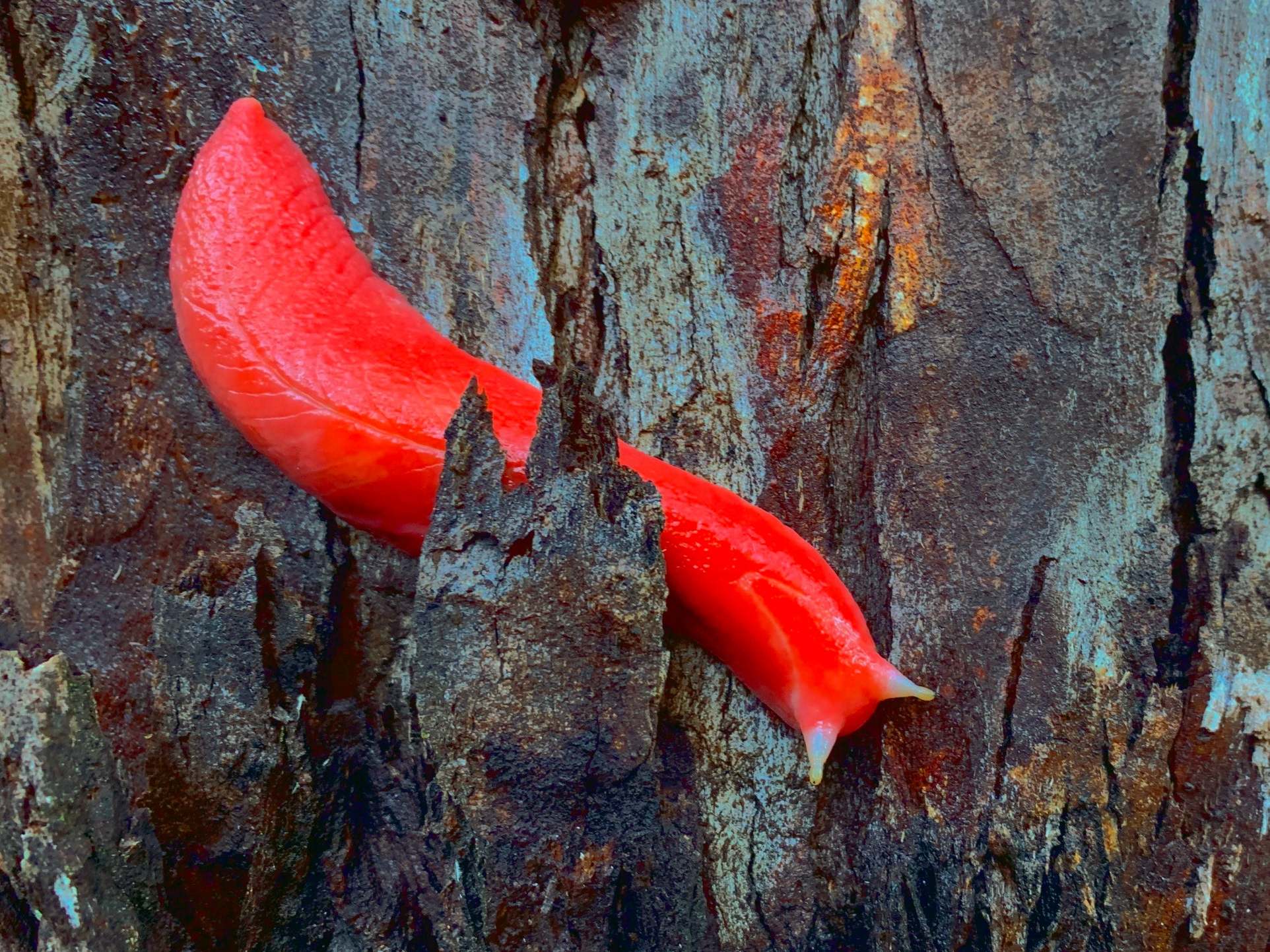Australia fires: Giant hot pink slug, unique to extinct volcano, survives blazes
Creatures retreated into rock crevices to avoid heat as flames wiped out almost everything else

When bushfires ravaged the extinct Australian volcano where a species of giant hot pink slug lives, experts feared the unusual creature may be facing extinction.
But, it seems, the Kaputar slugs – hand-sized creatures which are unique to Mount Kaputar in New South Wales – may be somewhat tougher than expected.
At least 60 of the fluorescent-coloured creatures have been spotted on the slopes after six weeks of fire destroyed almost the entire 18,000 hectares of land they call home.
How come? It seems these slippery customers squeezed their way into rock crevices to avoid the fiercest of the heat.
Dr Frank Kohler, a malacologist at the Australian Museum, said about 90 per cent of the slug population on the mountain – an extinct volcano that forms part of a national park – had been killed.
And he added that more yet would perish from starvation with much of their food stuff – fungi, moss and mould – burnt away.
But he said that National Parks and Wildlife Service rangers had been delighted to see so many of the Kaputar slugs coming out of hiding after recent rains.
And he was confident the species, which reproduces quickly, would thrive again.
He said: “Slugs and snails are the foundation of all of our ecosystems. They are the foundation food source for many mammals and birds.”
Talking to the Guardian, he added: “Species don’t exist independent of other species, and we need to try to maintain the whole system and all the species within in it against environmental impacts such as the fires.”
Join our commenting forum
Join thought-provoking conversations, follow other Independent readers and see their replies
Comments
Bookmark popover
Removed from bookmarks